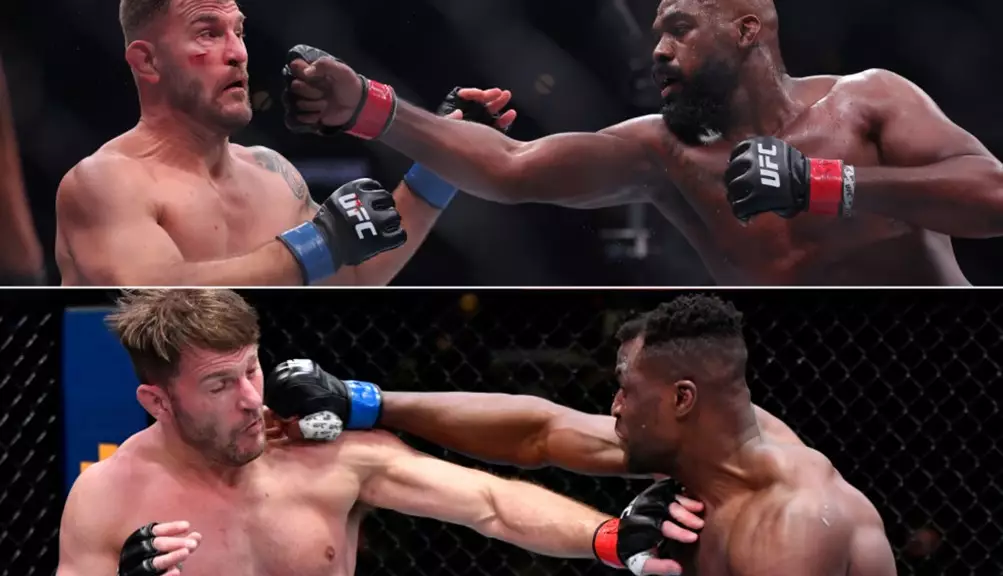In the ever-evolving landscape of mixed martial arts (MMA), the title of “Baddest Man on the Planet” elicits significant attention, particularly within the heavyweight division. This moniker traditionally represents not merely the most talented fighter but also a symbol of dominance and prowess capable of commanding respect across all fighting formats. Recently, former two-time heavyweight champion Stipe Miocic stirred discussions with his unexpected endorsement of Francis Ngannou, turning the spotlight on Ngannou’s achievements both within the UFC and outside it.
After retiring from an intense bout against current heavyweight champion Jon Jones, in which he suffered a third-round TKO at UFC 309, Miocic took a moment to reflect on the state of heavyweight MMA. When queried about who he regards as the “Baddest Man on the Planet,” Miocic’s allegiance to Ngannou caught many off guard. As he expressed to The Schmo, “I’ll go with Francis just because he is tearing it up.” This decision resonates with significance; it highlights not only Ngannou’s remarkable fighting skills but also his recent foray into boxing, illustrating a multidimensional skill set that elevates him beyond traditional expectations for heavyweight fighters.
By publicly supporting Ngannou, Miocic solidifies the former champion’s position as a leading figure in heavyweight MMA. Furthermore, it communicates an acknowledgment of Ngannou’s current momentum, indicating that attributes such as adaptability and progression in styles have become vital in the competitive arena of combat sports. In an era where fighters often specialize and perfect singular disciplines, Ngannou’s cross-training in boxing exemplifies the evolving nature of fighter preparation, fostering intrigue about future match-ups and potential rivalries.
Looking ahead, Miocic provided strategic insight to Tom Aspinall, the interim heavyweight champion, emphasizing a calm demeanor when facing a formidable opponent like Jon Jones. Miocic’s humorous yet earnest advice—“Don’t do what I did”—implies an understanding of the mental aspect of competition, particularly against an opponent with the skill set of Jones. His insights reflect not just personal experience but also an educational perspective on preparing strategically for high-stakes bouts. The key takeaway from Miocic’s advice centers on tactical patience and selective aggression, which Aspinall will need to incorporate into his fight strategy.
Miocic’s legacy is firmly cemented in MMA history, often regarded as the greatest heavyweight champion due to his record-breaking title defenses against elite competitors, including Alistair Overeem and Junior Dos Santos. His insight into the current dynamics of the heavyweight competition highlights a thoughtful transition from fighter to mentor. As he steps away from active competition, Miocic’s reflections and predictions will undoubtedly influence upcoming fighters and matchups, showcasing the ripple effects of past champions in shaping the future of the sport.
In a sport driven by performance and accolades, Miocic’s tribute to Ngannou underscores a broader narrative that goes beyond individual rivalry; it encapsulates the spirit of evolving traditions, sportsmanship, and the relentless quest for greatness within the octagon.

